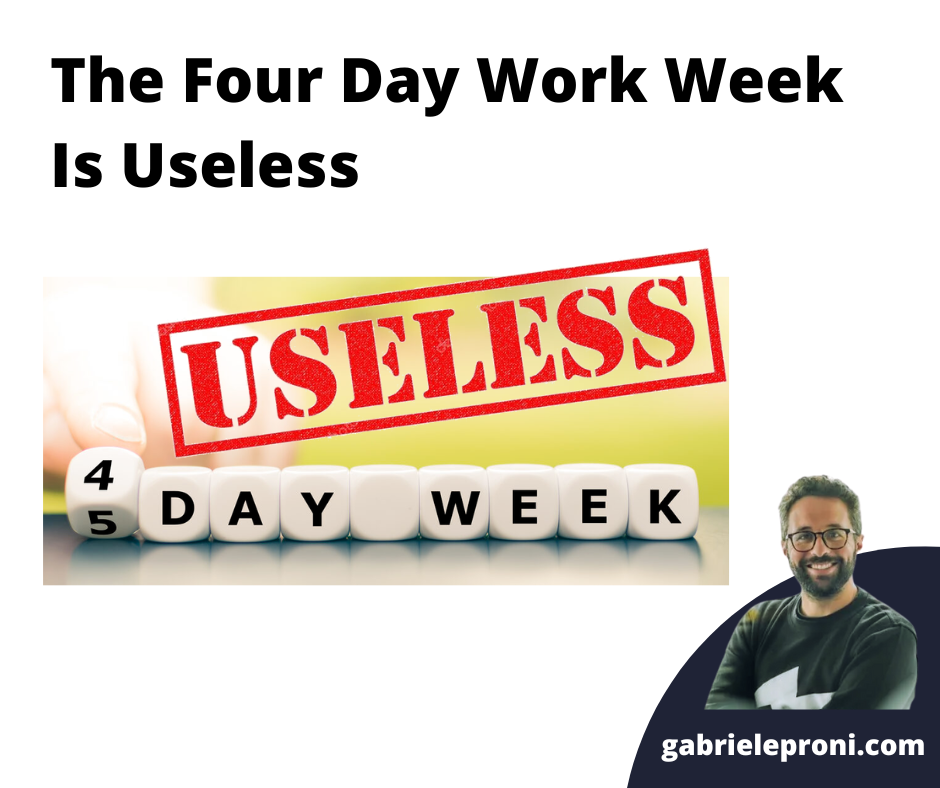This Saturday, I want to share my opinion about the Four Day Work Week.
Last weekend, I ran my first half marathon in Barcelona. It was an unbelievable result for me because I only started running in October.
It was possible thanks to the help of my coach Mario (take a look on his website), and the remote-first working framework of my company, Voxloud.
I got some lovely photos of me smiling while running. But I think it’s more authentic to share an image that can picture how much I’ve suffered. 

Speaking of work, the topic that’s been trending recently is the four-day workweek.
The world’s most extensive four-day workweek pilot has been launched in the U.K. . The results seem stunning.
Fifteen percent of employees who participated said that “no amount of money” would convince them to return to working five days a week.
Most firms say they won’t go back.
I believe that the four-day workweek is useless.
Now before you think I’m crazy, hear me out.
It’s not that I’m against the idea of a shorter workweek. My point is that the most incredible value we can offer to our colleagues as managers is the total freedom to organize their time in the best way they want.
In a workweek of four days, people will still need to pick up their kids at school at 3 PM or go to the doctor.
My opinion is that even if the four-day workweek is for sure appreciated, at some point, it can become “normality”. Thus, it won’t be appreciated anymore.
Total freedom is a value that will always be appreciated and difficult to replicate by your competitors . You’ll increase the chances of retaining your best talents.
But let me ask you this: if I had one less day of work during the week, would I have been able to make better performance in my half marathon?
I think not. The freedom to organize my time over the entire week allowed me to train in the best way and be consistent.

My 2 cents about the four-day workweek
I’m not saying that the four-day workweek can’t work. It can only work for companies ready to implement it.
This means:
- having the proper communication framework
- the right way to evaluate results (based on OKR)
- the implementation of async interactions (so reduced meetings).
In a few words, the four-day workweek can be implemented with success only by remote-first companies. But in a first-remote company, the four-day workweek is useless.
Remote-first doesn’t necessarily mean fully remote companies. It means implementing a working framework where every teammate is not blocked by others and doesn’t require the presence (at the same time as his presence) of others to perform his duties.
If you’re interested in implementing a remote-first working framework in your team, I recently launched a free email course named Remote Team Mastery.
It’s packed with actionable tips and strategies to help you get the most out of your remote team.
About the Newsletter
1 actionable tip on remote management in your inbox every Saturday morning.
Subscribe